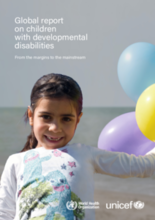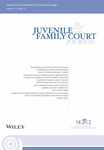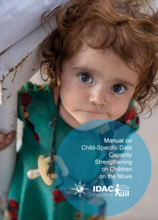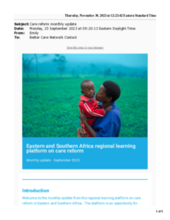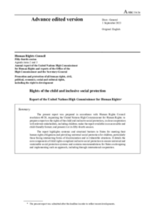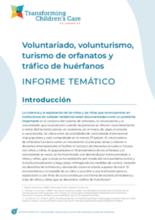Displaying 451 - 460 of 4424
The 2023 SDG Summit will take place on 18-19 September 2023 in New York. It will mark the beginning of a new phase of accelerated progress towards the Sustainable Development Goals with high-level political guidance on transformative and accelerated actions leading up to 2030.
Supported by a grant from the Martin James Foundation, the Alliance will soon be implementing a new project to mobilise the experiences and knowledge of care-experienced youth, family me
This WHO-UNICEF Global Report on children with developmental disabilities provides principles and approaches to intentionally include the needs and aspirations of children and young people with developmental disabilities in policy, programming and public health monitoring.
The Inter-American Commission on Human Rights (IACHR) announces the opening of the IACHR and Both Ends Believing Fellowship Program for 2023. This fellowship provides young professionals with the opportunity to learn about and apply the mechanisms of the IACHR, especially in relation to children's rights, as addressed in the 2013 thematic report "The Rights of Boys and Girls to a Family."
The Centre for the Study of Social Policy's Strengthening Families is hosting a webinar to share new resources and opportunities from national and state Strengthening Families partners and to answer questions about Strengthening Families implementation.
The purpose of this nonexperimental quantitative study was to examine the responses of 18- to 24-year-olds (n = 83) who had been in out-of-home care, comparing early adolescent versus non-early adolescent placement, placement setting, and sibling accessibility on attachment.
This manual aims to help countries and their national statistical systems to improve the collection, analysis, sharing and use of data on children on the move.
This is the monthly update of the Eastern and Southern Africa Regional Learning Platform published in September 2023.
The present report was prepared in accordance with Human Rights Council resolution 49/20, requesting the United Nations High Commissioner for Human Rights: to prepare a report on the rights of the child and inclusive social protection, in close co
Este Informe Temático sobre voluntariado, volunturismo, turismo de orfanatos y tráfico de huérfanos fue elaborado para aportar lineamientos a los Gobiernos, los responsables de políticas y otros responsables de la toma de decisiones. También respalda la implementación de los compromisos internacionales asumidos en el contexto de la Resolución de la Asamblea General de la ONU 2019 sobre los Derechos de los niños y las niñas privados del cuidado parental. Explica de qué modo tomar las medidas apropiadas para abordar y prevenir los daños asociados al voluntariado en orfanatos, el turismo de orfanatos y el volunturismo, y al tráfico de huérfanos vinculado con las actividades anteriores.

